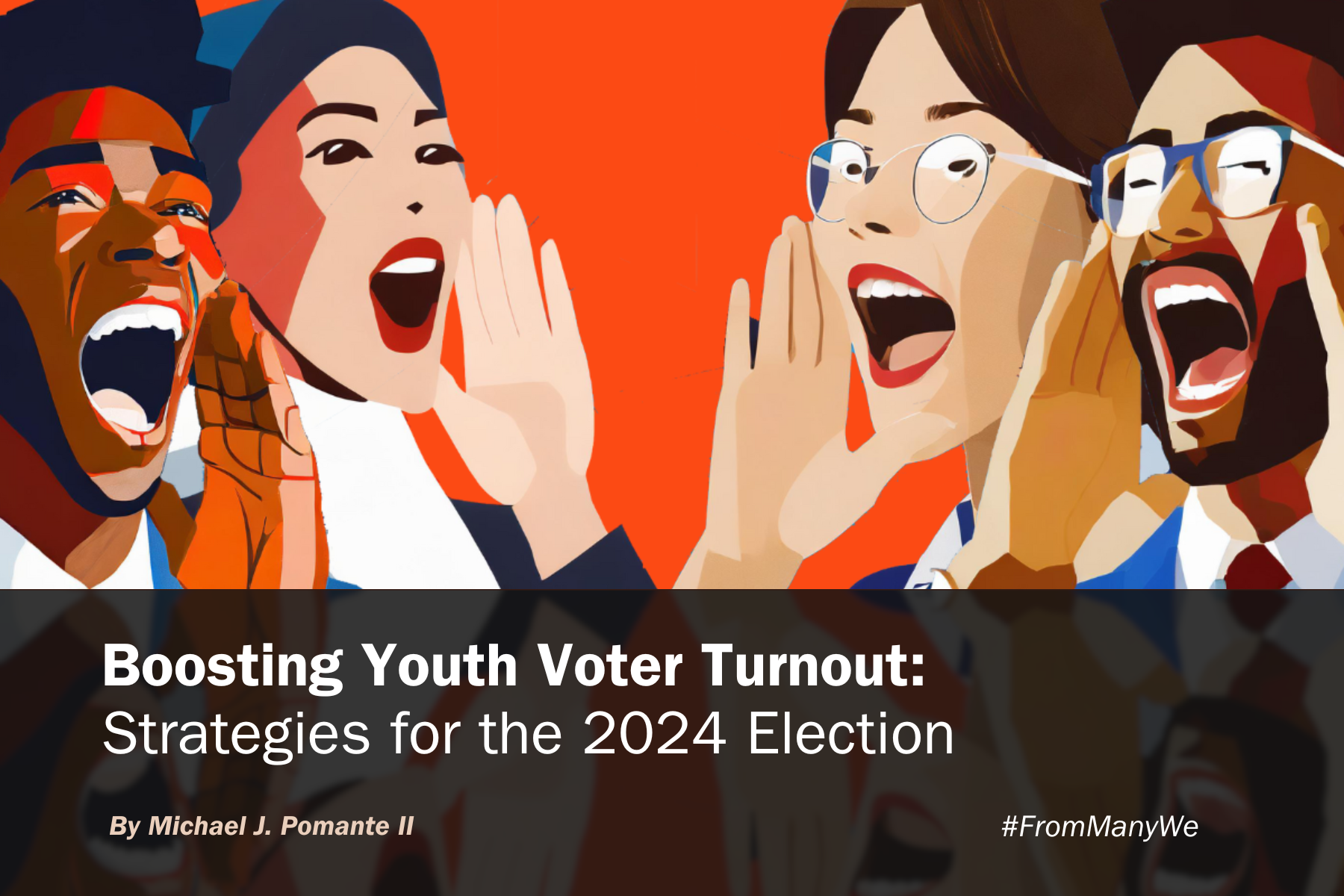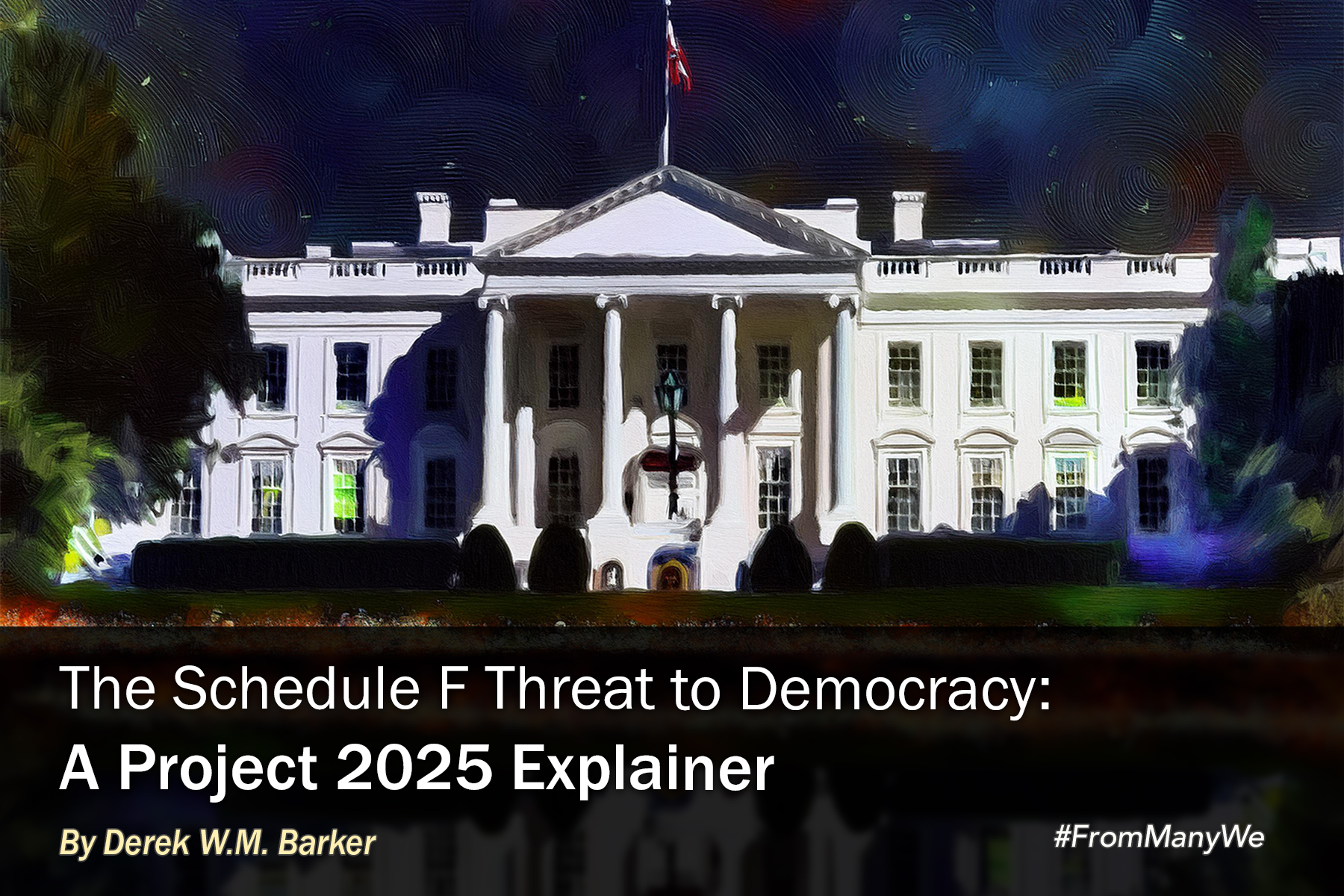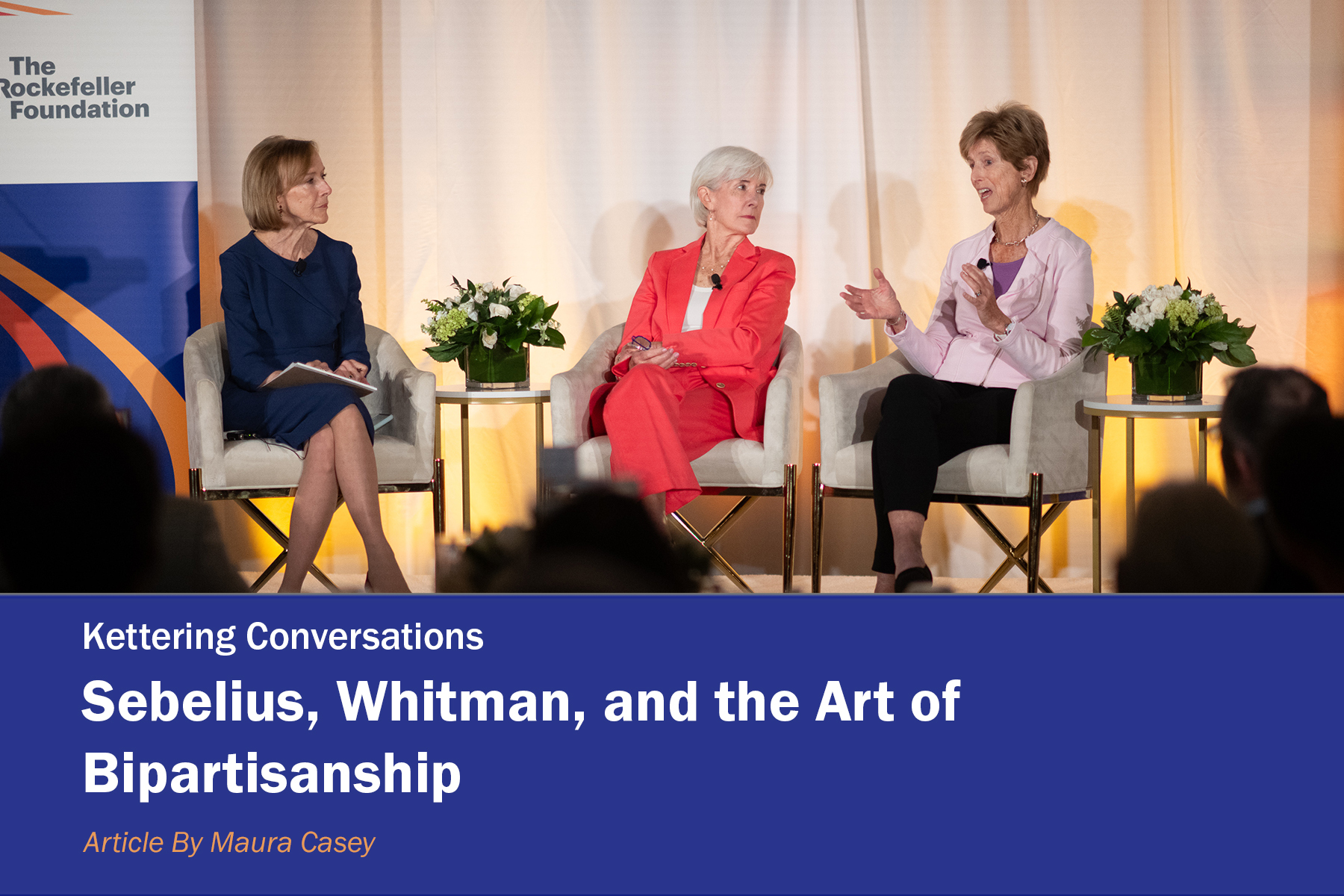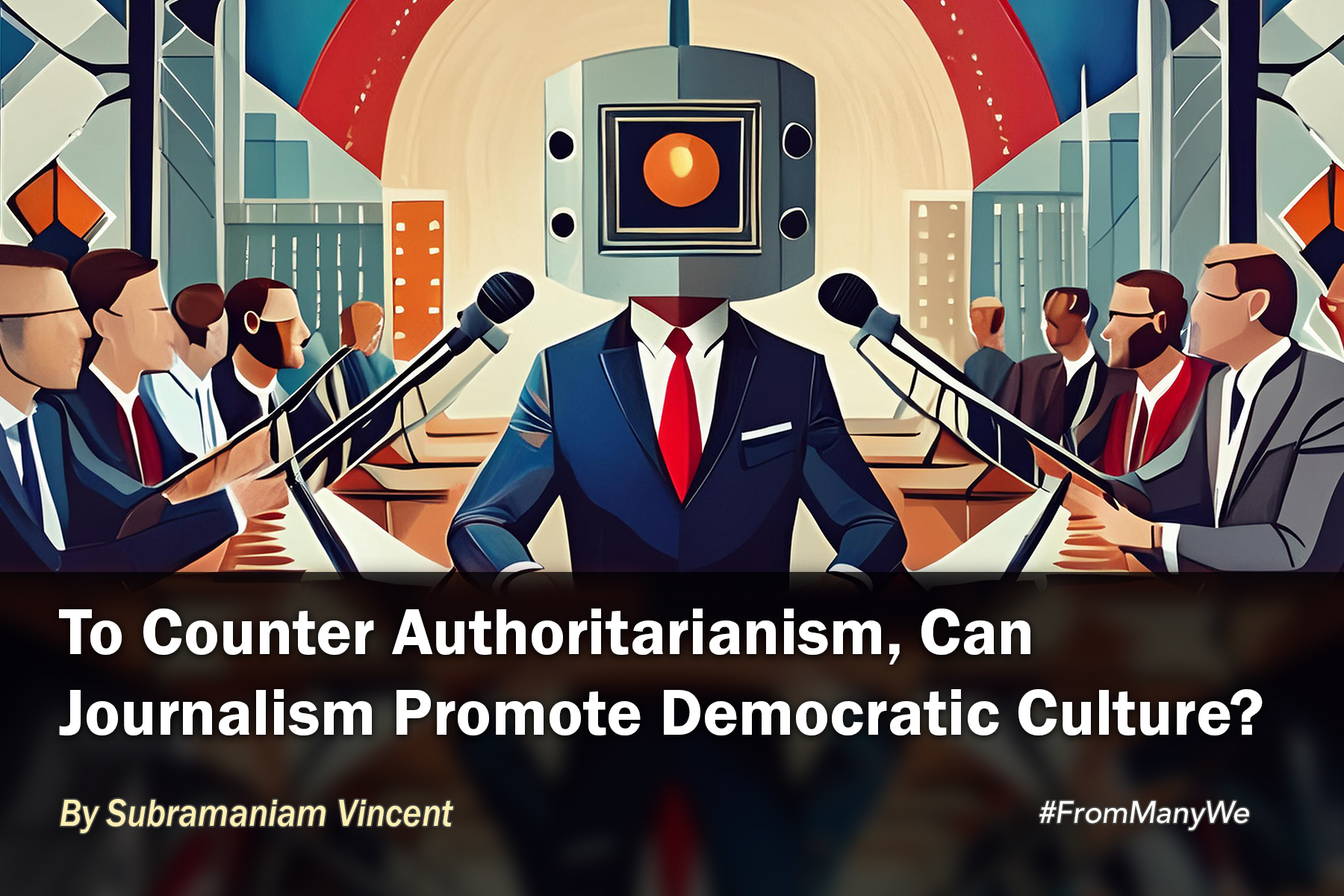A Pro-Democracy Strategy to Defeat Extremism in 2024
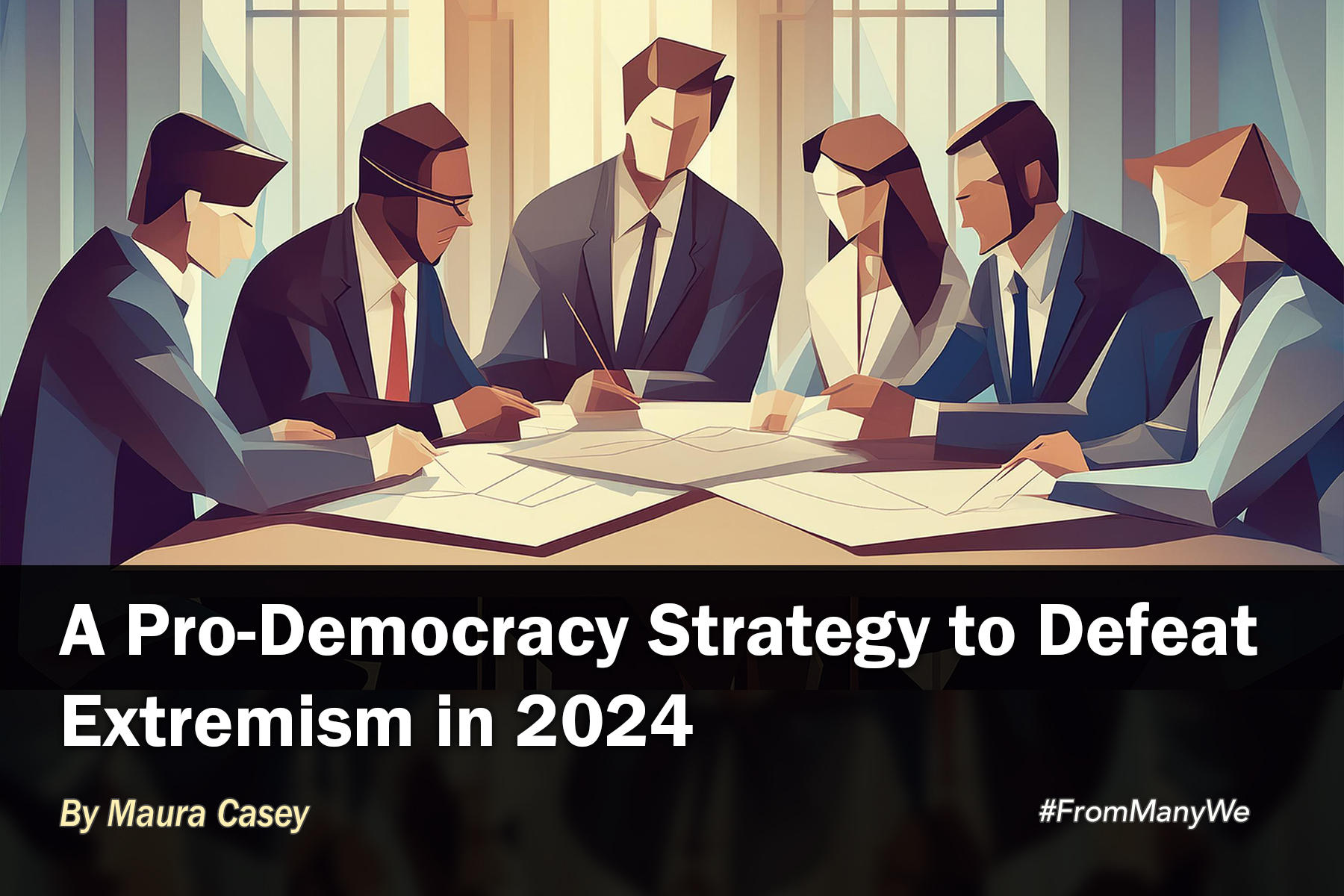
If American democracy is in crisis, the current state of the Republican Party is a major reason why. It no longer seems guided by traditional, issues-based conservatism. The party’s focus no longer seems centered on principles but rather on supporting the priorities and falsehoods of former President Donald Trump. This has to change for the health of our political system. But ultimately, bringing change to this course is up to the voters.
Unrest Within the GOP
Not all Republicans accept the current status quo of their party, and they may become the change makers that are so needed. A significant minority wants the party to follow a different path. For example, Trump challenger Nikki Haley, who ended her presidential campaign in March, still garnered 16.62 percent of Republican ballots in Pennsylvania’s closed primary, in which only party members are allowed to vote.
The party’s growing support for Russia has caused delays of military aid to Ukraine for months, resulting in lost lives and territory. Former Speaker of the House Paul Ryan said, “They’re helping curate a line of thought, a school of thought that is isolationist, that is pro-Putin, pro-Russia, pro-tyranny at the end of the day. And that is extremely dangerous . . . for us as a democracy.”
Kettering senior fellow Michael Luttig has been sharply critical of the former president’s actions. Luttig, a former circuit judge for the United States Court of Appeals, cowrote a Supreme Court amicus brief that challenged Trump’s eligibility to run for president based on his conduct on January 6, 2021. “The threat or use of armed force to prevent a newly elected president from exercising executive power . . . is an insurrection against the Constitution,” Luttig wrote.
Kettering Foundation senior fellow and former New Jersey Governor Christine Todd Whitman pressed the Republican Party to hold Trump accountable after January 6 and urged Republicans in the Senate to impeach him. Too few did. “Rule of law is the basis of our democracy,” Whitman said in a recent conversation. “He’s [Trump] now challenging that very fundamental premise of our democracy.”
The Playbook: Solidify the Base, Purge the Rest
Trump has insisted that Republican lawmakers publicly support the big lie that he won the 2020 election. Demanding this support is a litmus test of loyalty of the officials who also solicit his support in return. The lie has only grown with the passage of time as Trump continues his claims of immunity. The current members of the 118th Congress include 8 senators and 118 representatives who had voted against certifying Joe Biden’s election. Supporting that lie, despite 60 legal cases that found no election fraud that would have changed the election results, has now become a cornerstone of the Republican Party.
Trump says he doesn’t need Haley voters. Instead, he’s concentrating on his base. These moves are emblematic of the GOP concentration on its own core base of voters to the exclusion of all others. It’s not a strategy to grow the party. Trump’s disdain for Haley voters could cost the party the election.
A Pro-Democracy Strategy
So what is a citizen to do? Simply put, the Republican Party will never return to the folds of democracy without the help of the voters. Like an alcoholic who has to be threatened with job loss in order to stop drinking, it is clear that many Republicans will need outside pressure to veer back toward the pro-democracy party that it once was. Many won’t stand up to Trump because to do so threatens their reelections; to refute his lies risks his wrath. But voters can educate themselves to determine which federal, state, and local officials supported Trump in his anti-democratic ways and vote against those who support his efforts. Republicans who are unsettled by Trump’s actions can make a difference in November, particularly in swing states.
In addition to voting, people can:
Raise their voices: Ordinary people can write letters to the editor, post political videos to their chosen social media platform, and speak out on X, formerly Twitter. Such efforts can be persuasive to others who are on the fence concerning issues and whom to vote for.
Become poll workers: Getting involved in the nuts and bolts of how the electoral system works is virtually a guarantee to increase faith in the process. Every election cycle, poll workers are needed as the bulwarks of democracy.
Sign petitions and volunteer to help gather signatures. In Ohio last year, enough citizens signed petitions to place a state constitutional amendment on the ballot that would explicitly guarantee the right to an abortion, which voters approved in November. This year, Ohio voter signatures are equally important to reform the manner in which boundaries are drawn for political districts. In both cases, voter signatures were the first step.
In the end, a two-party democracy cannot function well when members of one party undermine the democratic pillars of the peaceful transfer of power and the legitimacy of elections. But ultimately, voters can still have their say, and they may yet have the last word.
Maura Casey is a former New York Times editorial writer. She has written for the Kettering Foundation since 2010.
From Many, We is a Charles F. Kettering Foundation blog series that highlights the insights of thought leaders dedicated to the idea of inclusive democracy. Queries may be directed to fmw@kettering.org.

